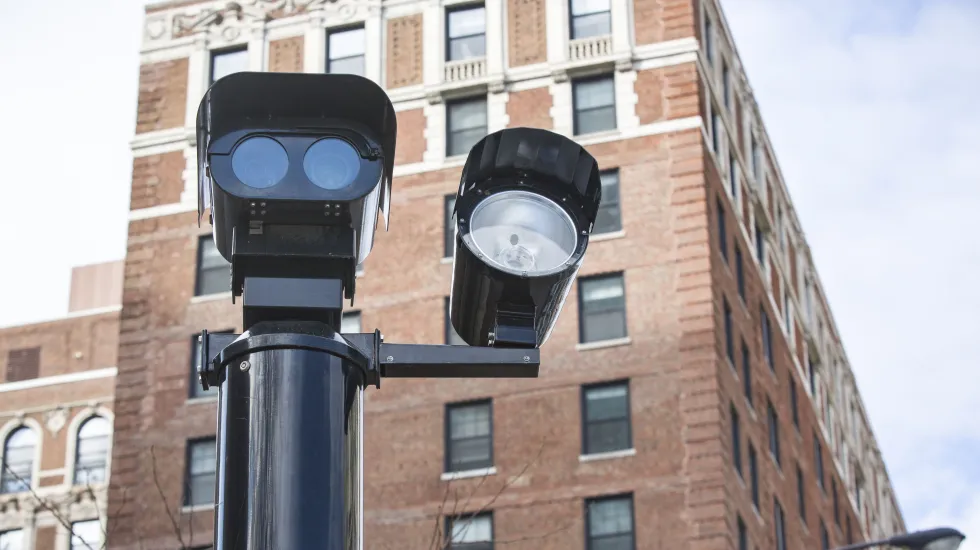
Mayor Lori Lightfoot’s administration on Thursday touted a pair of new or enhanced programs baked into her 2022 budget to relieve the burden on some Chicagoans driven into debt and bankruptcy by the city’s overreliance on ticket revenue.
To loosen the yoke of debt between now and Dec. 31, Chicago will offer motorists at all income levels a first-ever “fix-it” defense for compliance violations such as an invalid or missing city sticker or expired license plates.
The “fix-it” defense can be used only once per violation for the lifetime of a license plate. The only requirement to have a ticket dismissed is to purchase and display a valid sticker and contest the ticket online, by mail or in-person showing proof of purchase.
If motorists provide that proof, any tickets issued for that violation in the 30 days before compliance will be dismissed.
The more generous of the two offers is earmarked for 10,733 city residents already enrolled in the “Utility Billing Relief” program and for Chicagoans whose household incomes do not exceed “300% of federal poverty guidelines.” That’s no more than $82,250 for a family of four.
Motorists enrolled in the “Clear Path Relief” program will get relief from red-light and speed camera tickets, compliance tickets and parking violations. Tickets for expired meters are not covered.
Motorists who pay the original fine for eligible tickets issued within the past three years will have older eligible debt waived.
New tickets issued and paid on time within a year after enrollment will be cut in half.
And penalties will be waived until Dec. 31 on “new unpaid eligible tickets.”
In a news release touting the two programs, Lightfoot noted that “tens of thousands” of Chicago motorists are “placed into greater economic hardship” each year by “accumulated delinquent parking debt” they can’t afford to pay.
“With these ongoing set of reforms, we hope to give Chicago motorists additional options to clear the slate and make payments appropriate for their income level,” the mayor said.
City Comptroller Reshma Soni said the two programs are a natural offshoot of the 2-year-old plan that helps low-income Chicagoans “manage water and sewer bills.”
“We’ve never done anything like this before. ... This program will help additional motorists who need financial relief the most,” Soni said.
Lightfoot campaigned on a promise to raise the boot threshold, stop booting for nonmoving violations and eliminate a hefty chunk of red-light cameras if those cameras were used for revenue, not safety.
She has delivered on some of those promises.
The mayor lowered the threshold for speed camera violations — to just 6 mph over the limit — generating an avalanche of new violations.
She has defended the lower threshold as essential to stop a 45% surge in traffic deaths when speeding was almost encouraged by empty streets during the pandemic.
Overall, the mayor has defended her “go-slow approach” to debt relief by arguing that vehicle tickets account for $260 million in annual revenue and that a habit like that can’t be broken overnight.







